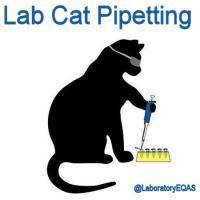-
Posts
213 -
Joined
-
Last visited
Reputation Activity
-
 sqxz got a reaction from Angelo X in Urbana-Champaign, IL
sqxz got a reaction from Angelo X in Urbana-Champaign, IL
I agree that it will be difficult to find a one bedroom apartment close to campus with all utilities included for under $700. It can be done if you're willing to accept some of the cheapest apartments in town, but it may not have all of the amenities you're looking for. Any website where apartments are listed (hotpads, ApartmentFinder, craigslist, etc.) can be used to see what options are currently available in Champaign-Urbana. I also agree that Urbana will generally have cheaper apartment options available.
-
 sqxz got a reaction from AllieKat in 2019 Applicant Profiles and Admissions Results
sqxz got a reaction from AllieKat in 2019 Applicant Profiles and Admissions Results
In my year, three of my seven invitations to interview came after this date. My last invitation to interview came on February 18. It's still early.
The competitiveness of the interview process varies widely from program to program. Some places I interviewed stated (when asked) that they had a post-interview acceptance rate of less than 50%. Others stated (unprompted) that the interview was basically a formality. I just want to put this out there now to encourage people to temper their expectations about what getting an interview might actually mean.
-
 sqxz got a reaction from immerbesserwerden in 2019 Applicant Profiles and Admissions Results
sqxz got a reaction from immerbesserwerden in 2019 Applicant Profiles and Admissions Results
In my year, three of my seven invitations to interview came after this date. My last invitation to interview came on February 18. It's still early.
The competitiveness of the interview process varies widely from program to program. Some places I interviewed stated (when asked) that they had a post-interview acceptance rate of less than 50%. Others stated (unprompted) that the interview was basically a formality. I just want to put this out there now to encourage people to temper their expectations about what getting an interview might actually mean.
-
 sqxz got a reaction from AllieKat in Ask questions about the PhD application process!
sqxz got a reaction from AllieKat in Ask questions about the PhD application process!
Generally speaking, this is a bad idea. If you're applying to the same schools, it is possible that the same professors will be reading your application. Whether they will remember it after reading dozens of other SOPs is another question, though some schools may have a procedure in place for tracking repeat applicants.. More to the point, if you want to be successful with your second round of applications when you weren't in your first, there should be major differences between your first and second applications, and those differences should manifest as more than two new paragraphs in your SOP. You should take the opportunity of applying a second time to do a serious, critical review of all aspects of your application, including the SOP. For starters, you should have some other qualified people read your SOP and give their comments on it , and you should definitely give how you can improve your SOP some serious thought yourself.
-
 sqxz got a reaction from Levon3 in NSF GRFP 2017-18
sqxz got a reaction from Levon3 in NSF GRFP 2017-18
For anyone already thinking about taxes as they relate to the NSF GRF, here are some key facts and resources that I have found helpful over the past two years (especially last year when I was on tenure for the entire calendar year).
The stipend fellows receive from the NSF GRF is considered "taxable income," but it is not considered "taxable compensation" by the IRS. Basically, what this means is that you have to pay income taxes on your stipend each year, but you cannot use your stipend to contribute to traditional or Roth IRAs.
Your university will also not include stipend payments on your W-2 (assuming they're following the rules), and your university may not be able to withhold taxes from your stipend payments. In this situation, you either have to pay several thousand dollars at once when taxes are due (including ~$70 of interest on "late" payments), or you can make "estimated tax payments" quarterly to split this up more evenly and avoid the interest fee.
If you do a Google search, it seems there used to be some ambiguity surrounding taxes and fellowships, but it appears the IRS has made their policies rather explicit within the past few years. This page (https://www.irs.gov/taxtopics/tc421) talks about which portions of fellowships are considered "taxable income" and how to report this income on your 1040, and this page (https://www.irs.gov/publications/p590a) talks about what kinds of income can be contributed to traditional and Roth IRAs . (The key sentence on the second page is, "Scholarship and fellowship payments are compensation for IRA purposes only if shown in box 1 of Form W-2.")
For what it's worth, Congress is aware of the problem of fellows not being allowed to contribute to retirement accounts. Last year, Senators Elizabeth Warren, Mike Lee, Ron Wyden, and Tim Scott introduced a bipartisan bill to fix this problem (https://www.warren.senate.gov/newsroom/press-releases/sens-warren-lee-wyden-scott-introduce-bipartisan-bill-to-help-graduate-students-build-retirement-savings), but (as far as I'm aware), it was never voted upon, and this issue was not addressed in the tax reform bill passed recently. (Please correct me if I'm wrong.) This standalone bill was first introduced in 2016, and I suspect it will be reintroduced again later this year (if it hasn't been already).
-
 sqxz got a reaction from healthgeographer in NSF GRFP 2017-18
sqxz got a reaction from healthgeographer in NSF GRFP 2017-18
For anyone already thinking about taxes as they relate to the NSF GRF, here are some key facts and resources that I have found helpful over the past two years (especially last year when I was on tenure for the entire calendar year).
The stipend fellows receive from the NSF GRF is considered "taxable income," but it is not considered "taxable compensation" by the IRS. Basically, what this means is that you have to pay income taxes on your stipend each year, but you cannot use your stipend to contribute to traditional or Roth IRAs.
Your university will also not include stipend payments on your W-2 (assuming they're following the rules), and your university may not be able to withhold taxes from your stipend payments. In this situation, you either have to pay several thousand dollars at once when taxes are due (including ~$70 of interest on "late" payments), or you can make "estimated tax payments" quarterly to split this up more evenly and avoid the interest fee.
If you do a Google search, it seems there used to be some ambiguity surrounding taxes and fellowships, but it appears the IRS has made their policies rather explicit within the past few years. This page (https://www.irs.gov/taxtopics/tc421) talks about which portions of fellowships are considered "taxable income" and how to report this income on your 1040, and this page (https://www.irs.gov/publications/p590a) talks about what kinds of income can be contributed to traditional and Roth IRAs . (The key sentence on the second page is, "Scholarship and fellowship payments are compensation for IRA purposes only if shown in box 1 of Form W-2.")
For what it's worth, Congress is aware of the problem of fellows not being allowed to contribute to retirement accounts. Last year, Senators Elizabeth Warren, Mike Lee, Ron Wyden, and Tim Scott introduced a bipartisan bill to fix this problem (https://www.warren.senate.gov/newsroom/press-releases/sens-warren-lee-wyden-scott-introduce-bipartisan-bill-to-help-graduate-students-build-retirement-savings), but (as far as I'm aware), it was never voted upon, and this issue was not addressed in the tax reform bill passed recently. (Please correct me if I'm wrong.) This standalone bill was first introduced in 2016, and I suspect it will be reintroduced again later this year (if it hasn't been already).
-
 sqxz got a reaction from julysnow in NSF GRFP 2017-18
sqxz got a reaction from julysnow in NSF GRFP 2017-18
For anyone already thinking about taxes as they relate to the NSF GRF, here are some key facts and resources that I have found helpful over the past two years (especially last year when I was on tenure for the entire calendar year).
The stipend fellows receive from the NSF GRF is considered "taxable income," but it is not considered "taxable compensation" by the IRS. Basically, what this means is that you have to pay income taxes on your stipend each year, but you cannot use your stipend to contribute to traditional or Roth IRAs.
Your university will also not include stipend payments on your W-2 (assuming they're following the rules), and your university may not be able to withhold taxes from your stipend payments. In this situation, you either have to pay several thousand dollars at once when taxes are due (including ~$70 of interest on "late" payments), or you can make "estimated tax payments" quarterly to split this up more evenly and avoid the interest fee.
If you do a Google search, it seems there used to be some ambiguity surrounding taxes and fellowships, but it appears the IRS has made their policies rather explicit within the past few years. This page (https://www.irs.gov/taxtopics/tc421) talks about which portions of fellowships are considered "taxable income" and how to report this income on your 1040, and this page (https://www.irs.gov/publications/p590a) talks about what kinds of income can be contributed to traditional and Roth IRAs . (The key sentence on the second page is, "Scholarship and fellowship payments are compensation for IRA purposes only if shown in box 1 of Form W-2.")
For what it's worth, Congress is aware of the problem of fellows not being allowed to contribute to retirement accounts. Last year, Senators Elizabeth Warren, Mike Lee, Ron Wyden, and Tim Scott introduced a bipartisan bill to fix this problem (https://www.warren.senate.gov/newsroom/press-releases/sens-warren-lee-wyden-scott-introduce-bipartisan-bill-to-help-graduate-students-build-retirement-savings), but (as far as I'm aware), it was never voted upon, and this issue was not addressed in the tax reform bill passed recently. (Please correct me if I'm wrong.) This standalone bill was first introduced in 2016, and I suspect it will be reintroduced again later this year (if it hasn't been already).
-
 sqxz got a reaction from capslock in NSF GRFP 2017-18
sqxz got a reaction from capslock in NSF GRFP 2017-18
For anyone already thinking about taxes as they relate to the NSF GRF, here are some key facts and resources that I have found helpful over the past two years (especially last year when I was on tenure for the entire calendar year).
The stipend fellows receive from the NSF GRF is considered "taxable income," but it is not considered "taxable compensation" by the IRS. Basically, what this means is that you have to pay income taxes on your stipend each year, but you cannot use your stipend to contribute to traditional or Roth IRAs.
Your university will also not include stipend payments on your W-2 (assuming they're following the rules), and your university may not be able to withhold taxes from your stipend payments. In this situation, you either have to pay several thousand dollars at once when taxes are due (including ~$70 of interest on "late" payments), or you can make "estimated tax payments" quarterly to split this up more evenly and avoid the interest fee.
If you do a Google search, it seems there used to be some ambiguity surrounding taxes and fellowships, but it appears the IRS has made their policies rather explicit within the past few years. This page (https://www.irs.gov/taxtopics/tc421) talks about which portions of fellowships are considered "taxable income" and how to report this income on your 1040, and this page (https://www.irs.gov/publications/p590a) talks about what kinds of income can be contributed to traditional and Roth IRAs . (The key sentence on the second page is, "Scholarship and fellowship payments are compensation for IRA purposes only if shown in box 1 of Form W-2.")
For what it's worth, Congress is aware of the problem of fellows not being allowed to contribute to retirement accounts. Last year, Senators Elizabeth Warren, Mike Lee, Ron Wyden, and Tim Scott introduced a bipartisan bill to fix this problem (https://www.warren.senate.gov/newsroom/press-releases/sens-warren-lee-wyden-scott-introduce-bipartisan-bill-to-help-graduate-students-build-retirement-savings), but (as far as I'm aware), it was never voted upon, and this issue was not addressed in the tax reform bill passed recently. (Please correct me if I'm wrong.) This standalone bill was first introduced in 2016, and I suspect it will be reintroduced again later this year (if it hasn't been already).
-
 sqxz got a reaction from theprincessleia in Urbana-Champaign, IL
sqxz got a reaction from theprincessleia in Urbana-Champaign, IL
I agree that it will be difficult to find a one bedroom apartment close to campus with all utilities included for under $700. It can be done if you're willing to accept some of the cheapest apartments in town, but it may not have all of the amenities you're looking for. Any website where apartments are listed (hotpads, ApartmentFinder, craigslist, etc.) can be used to see what options are currently available in Champaign-Urbana. I also agree that Urbana will generally have cheaper apartment options available.
-
 sqxz got a reaction from StemCellFan in 2018 Applicant Profiles and Admissions Results
sqxz got a reaction from StemCellFan in 2018 Applicant Profiles and Admissions Results
Congratulations! No, it's not bad to wait to accept. In fact, I would encourage you to do so until after your last interview.
-
 sqxz got a reaction from genomicsandstuff in 2018 Applicant Profiles and Admissions Results
sqxz got a reaction from genomicsandstuff in 2018 Applicant Profiles and Admissions Results
For additional information and solidarity as April approaches, this topic may be of interest to you:
-
 sqxz got a reaction from spectastic in NSF GRFP 2016-2017
sqxz got a reaction from spectastic in NSF GRFP 2016-2017
As of last year (and I don't believe this has changed), each class of eligible student competes only against the same class for the available awards. That is, undergrad seniors compete only against undergrad seniors, first year grad students compete only against first year grad students, etc. This information comes from the Office of External Fellowships at the University of Illinois at Urbana-Champaign, whose director has served as a panelist for several years, and Bill Hahn, who recently served as the director of the NSF GRFP and who gave a workshop on applying for an NSF GRF at UIUC in 2015. I do not know how it is decided how many awards are given to each class of student, but I suspect it is based (at least in part) on how many students from that class applied for an award. I suspect this also plays a significant role in how awards are distributed across scientific fields.
With this in mind, to be competitive as a second year grad student, you need to ask yourself what it is you need to do to stand out from your peers in your particular field and your particular year. You should have more research results than an undergrad or first year grad student. This should manifest as a higher quality research proposal and more publications and conference presentations than less advanced applicants. You should also have richer experience with outreach/service and leadership activities than less advanced applicants. Please note that this doesn't mean you should have a greater number of such experiences. It means your experiences should be deeper and more impactful.
-
 sqxz got a reaction from biotechie in 2017 Applicant Profiles and Admissions Results
sqxz got a reaction from biotechie in 2017 Applicant Profiles and Admissions Results
Cancelling an interview after a program has bought a plane ticket is considered really bad form and reflects very poorly on you. If you're feeling this way now, you should not have accepted so many interviews in the first place. Even if you're no longer interested in a program, most administrators would rather you come and fake it than force them to eat that sunk cost of a plane ticket. If you really feel that it's absolutely necessary for you to cancel this interview, you should explain the circumstances, apologize, and offer to pay the program back for the plane ticket.
Having said all that, if a program has bought your plane ticket for you, there's really no way for them to make you pay for it, though some programs may ask (demand) you to do so. If you've bought the plane ticket yourself and the program was going to reimburse you after the fact, you definitely shouldn't expect to get that reimbursement.
-
 sqxz got a reaction from rockyMicrobe in 2017 Applicant Profiles and Admissions Results
sqxz got a reaction from rockyMicrobe in 2017 Applicant Profiles and Admissions Results
Cancelling an interview after a program has bought a plane ticket is considered really bad form and reflects very poorly on you. If you're feeling this way now, you should not have accepted so many interviews in the first place. Even if you're no longer interested in a program, most administrators would rather you come and fake it than force them to eat that sunk cost of a plane ticket. If you really feel that it's absolutely necessary for you to cancel this interview, you should explain the circumstances, apologize, and offer to pay the program back for the plane ticket.
Having said all that, if a program has bought your plane ticket for you, there's really no way for them to make you pay for it, though some programs may ask (demand) you to do so. If you've bought the plane ticket yourself and the program was going to reimburse you after the fact, you definitely shouldn't expect to get that reimbursement.
-
 sqxz got a reaction from jumanji5a in 2017 Applicant Profiles and Admissions Results
sqxz got a reaction from jumanji5a in 2017 Applicant Profiles and Admissions Results
I emailed the professors with whom I interviewed asking if they had suggestions for improvement after my first interview and rejection. Some brushed me off, while others offered helpful feedback. If you do this politely and non-defensively/non-desperately, I think it can be a useful exercise. I wouldn't ask for particular reasons why you were rejected, though...I would just ask if they have any suggestions for improvement.
-
 sqxz got a reaction from blinchik in 2017 Applicant Profiles and Admissions Results
sqxz got a reaction from blinchik in 2017 Applicant Profiles and Admissions Results
Interview weekends work both ways. They are trying to decide whether they want you, and they are also trying to convince you to choose them. Post-interview acceptance rates vary widely by program, and you definitely shouldn't take for granted an acceptance once you've secured an interview. Most of the programs to which I applied had ~50% post-interview acceptance rates, which resulted in highly competitive interview processes. It was not enough to simply show up to the interview; you really had to work to make a strong impression on your interviewers.
This is why I said that you should wear whatever's going to put you in the best state of mind for your interview. Personally, I would feel extremely uncomfortable being the least formally dressed person at an event, especially when I know the hosts are judging me, so I chose what I wore accordingly. Also, in an ideal world, what you wear wouldn't matter to your interviewers. They would only be concerned with your ability to do good science. However, we live in the real world, and what you wear is likely going to have some sort of effect on your interviewers' perception of you. I chose what I wore with this in mind as well.
-
 sqxz got a reaction from myhairtiebroke in 2017 Applicant Profiles and Admissions Results
sqxz got a reaction from myhairtiebroke in 2017 Applicant Profiles and Admissions Results
You should absolutely feel free to ask tough questions about a program or university during your interview weekend. These interview weekends exist in part for you, the candidate, to evaluate the program and university. When asking about this, I would be general and ask something like, "How has the situation with Gov. Walker and the state legislature affected things here at the University of Wisconsin?" Most current graduate students will likely be fairly candid in their responses to questions, while professors may be a bit more strategic. It also may be worthwhile to ask the program coordinator(s) about this subject during your visit.
I suggest being general and also asking administrators this question because of my experience with a similar (though less extreme) situation at the University of Illinois. Gov. Rauner and the state legislature have been at an impasse over the state budget for a long time now, and this has resulted in significant cuts in state funding to the University of Illinois. These cuts have been passed along to the university administration, which has had not-too-obvious effects on graduate research.
For example, the way PIs spend money from their grants is now being scrutinized at an excruciating level. (Remember that most grants are awarded to PIs' home institutions, not PIs themselves, so the home institution gets a say in how the grant money is spent.) PIs have had difficulty purchasing expensive equipment for their labs because they have had to convince administrators (who obviously have little to no background in science) that the purchase is absolutely necessary for them to conduct their research. At the same time, some of the better administrators have left the university to find more hospitable work environments, which has made dealing with the administration even more difficult.
-
 sqxz got a reaction from MCF10A in 2017 Applicant Profiles and Admissions Results
sqxz got a reaction from MCF10A in 2017 Applicant Profiles and Admissions Results
You should absolutely feel free to ask tough questions about a program or university during your interview weekend. These interview weekends exist in part for you, the candidate, to evaluate the program and university. When asking about this, I would be general and ask something like, "How has the situation with Gov. Walker and the state legislature affected things here at the University of Wisconsin?" Most current graduate students will likely be fairly candid in their responses to questions, while professors may be a bit more strategic. It also may be worthwhile to ask the program coordinator(s) about this subject during your visit.
I suggest being general and also asking administrators this question because of my experience with a similar (though less extreme) situation at the University of Illinois. Gov. Rauner and the state legislature have been at an impasse over the state budget for a long time now, and this has resulted in significant cuts in state funding to the University of Illinois. These cuts have been passed along to the university administration, which has had not-too-obvious effects on graduate research.
For example, the way PIs spend money from their grants is now being scrutinized at an excruciating level. (Remember that most grants are awarded to PIs' home institutions, not PIs themselves, so the home institution gets a say in how the grant money is spent.) PIs have had difficulty purchasing expensive equipment for their labs because they have had to convince administrators (who obviously have little to no background in science) that the purchase is absolutely necessary for them to conduct their research. At the same time, some of the better administrators have left the university to find more hospitable work environments, which has made dealing with the administration even more difficult.
-
 sqxz got a reaction from kokobanana in 2017 Applicant Profiles and Admissions Results
sqxz got a reaction from kokobanana in 2017 Applicant Profiles and Admissions Results
Interview weekends work both ways. They are trying to decide whether they want you, and they are also trying to convince you to choose them. Post-interview acceptance rates vary widely by program, and you definitely shouldn't take for granted an acceptance once you've secured an interview. Most of the programs to which I applied had ~50% post-interview acceptance rates, which resulted in highly competitive interview processes. It was not enough to simply show up to the interview; you really had to work to make a strong impression on your interviewers.
This is why I said that you should wear whatever's going to put you in the best state of mind for your interview. Personally, I would feel extremely uncomfortable being the least formally dressed person at an event, especially when I know the hosts are judging me, so I chose what I wore accordingly. Also, in an ideal world, what you wear wouldn't matter to your interviewers. They would only be concerned with your ability to do good science. However, we live in the real world, and what you wear is likely going to have some sort of effect on your interviewers' perception of you. I chose what I wore with this in mind as well.
-
 sqxz got a reaction from yolk in NSF GRFP 2016-2017
sqxz got a reaction from yolk in NSF GRFP 2016-2017
My reading of last year's solicitation suggested that all text within the figure must be 10pt Times New Roman, but I seem to recall the wording was a bit vague/soft. Nevertheless, I made damn sure that the text in my figure was 10pt Times New Roman because I did not want to take the risk of being disqualified on a technicality. You'll have to read the wording in the solicitation for yourself and decide if you're willing to take the risk, or you could send an email to the NSF GRFP folks to get a clarification on the exact rules.
-
 sqxz got a reaction from sierra918 in NSF GRFP 2016-2017
sqxz got a reaction from sierra918 in NSF GRFP 2016-2017
I think you should definitely have separate IM and BI headings in both statements for two reasons. First, as was pointed out previously, the solicitation "recommends" it. Second, I think some reviewers use these headings to determine where they should pay extra close attention. At least one of my reviewers just regurgitated (almost verbatim) what I had written in my IM/BI sections in his/her reviews. I would recommend using these sections to convey the most important pieces of information that you can about you/your proposal that fulfills the IM/BI criteria.
For the research statement in particular, I was more general in the Introduction and very specific in the IM section. After all, how can you be specific about IM in the Introduction when the reviewer doesn't yet know what you're proposing to do?
-
 sqxz got a reaction from boneflower in NSF GRFP 2016-2017
sqxz got a reaction from boneflower in NSF GRFP 2016-2017
A lot of people, myself included, have done this in their proposals. It shouldn't be a problem.
-
 sqxz got a reaction from Pitangus in NSF GRFP 2016-2017
sqxz got a reaction from Pitangus in NSF GRFP 2016-2017
I think you should definitely have separate IM and BI headings in both statements for two reasons. First, as was pointed out previously, the solicitation "recommends" it. Second, I think some reviewers use these headings to determine where they should pay extra close attention. At least one of my reviewers just regurgitated (almost verbatim) what I had written in my IM/BI sections in his/her reviews. I would recommend using these sections to convey the most important pieces of information that you can about you/your proposal that fulfills the IM/BI criteria.
For the research statement in particular, I was more general in the Introduction and very specific in the IM section. After all, how can you be specific about IM in the Introduction when the reviewer doesn't yet know what you're proposing to do?
-
 sqxz got a reaction from Luptior in 2017 Applicant Profiles and Admissions Results
sqxz got a reaction from Luptior in 2017 Applicant Profiles and Admissions Results
Hey, everyone. Welcome to the 2017 application cycle! Since the new school year has begun (at least for me), I'm expecting things to pick up here pretty quickly. As in years past, I will be monitoring posts to this topic to see if there is any advice/questions I can provide/answer. I'm now a third-year Biophysics and Quantitative Biology PhD student at the University of Illinois at Urbana-Champaign, and I would describe my specific field as computational molecular biophysics. A copy of my stats (i.e., the form that current applicants have been posting), as they stood when I applied can be found on my profile, along with a list of the programs to which I applied and my results. I have also included my results list at the bottom of this post. There are many things I wish I had known when I was in your shoes, but I'm going to limit myself to two pieces of unsolicited advice, lest this post go on forever.
1. Look at individual professors' lab pages to decide how well your research interests fit with a program's. When I applied, I initially relied on program websites to determine what kind of research was being done. This was a mistake. Such information on program websites quickly becomes out-of-date when professors move to/from a university, and such information can also represent a program director's hopes rather than present realities. There is also a lot of room for misinterpretation when using the information on program websites. For example, several programs I looked at had titles like "Biophysics and Computational Biology" and stated they were doing research to figure out the mechanisms of proteins. That means they must be doing computational molecular biophysics, right? Wrong! Turns out, that stated research goal is only experimental, and the computational biology done in the program is all systems biology. When I applied, I didn't start looking at professors' lab pages until after I had written my SOP template and was trying to fill in the details for each program. Because of this, I had to scramble and swap out three of the programs to which I had originally been planning to apply...in October. (Coincidentally, the three programs I swapped in ended up being the three into which I was accepted, so these decisions really do matter.) Don't be like me. If you have not already done so, start looking at lab pages now! This is a lot of work, so plan accordingly.
2. You are (most likely) currently eligible and should apply for graduate fellowships. No one told me this until I was already interviewing, and it was far too late to apply at that point. There are many field-specific fellowships that you should all look into (this list is as close to comprehensive as any: <https://www.grad.illinois.edu/fellowship/>), but there are four general national US fellowships that I want to mention in particular (below). I will immediately note that you must be a US citizen, a US national, or a permanent resident to have a chance of being eligible for these fellowships, but there are many listed on the website above where this is not the case. In the past, three of these fellowships were open to applying graduate students (e.g., undergraduate seniors) and first- and second-year graduate students. In recent years, however, two of them have changed their eligibility such that you are eligible to apply once as an applying graduate student and once as a practicing graduate student. This past spring, I was fortunate enough to receive one of these fellowships (NSF GRFP), but this was only possible because I had already applied once before and was able to utilize the feedback/experience I received in that process. It is very much in your best interest to apply now if you are able!
Applying to these fellowships requires a lot of work on your part, but that workload is reduced because you are also applying to graduate school. You already have the references, materials, and the information you need on-hand, and you have already thought a lot about what motivates you as a scientist and the kind of research you want to do. Unlike most program applications, you will have to write a short research proposal for these fellowship applications, which will help you immensely when you go to your interviews. You should apply even if the fellowship stipend is smaller than what you would receive from your target programs. Many such programs will pay you the difference and even an added bonus because these fellowships are such a big deal in terms of prestige, both for you individually and for your university/program/lab.
These websites (<http://www.pgbovine.net/fellowship-tips.htm> and <http://www.alexhunterlang.com/nsf-fellowship>) are good starting points for information and advice on applying to the four fellowships to which I have alluded. You can also find a ton of information on "The Bank" forum <http://forum.thegradcafe.com/forum/17-the-bank/> for these and many other fellowships. While there are a few things I want to highlight about each fellowship below, you should definitely visit the fellowship websites for definitive information on eligibility, award, deadlines, etc. I will also note that I have only included the stipend in the information below, but there are other elements to each of these fellowships awards, both financial and opportunity-based.
National Science Foundation Graduate Research Fellowship (NSF GRFP) <https://www.nsfgrfp.org/> - Stipend: $34,000, 3 years - Deadline: 10/24/2016-10/28/2016 (depending on your specific field) - Open nationally to most STEM PhD and Master's graduate students. You are allowed to apply once as an applying graduate student and once either as a first-year graduate student or as a second-year graduate student. This is new, and you are the first group of students to whom this eligibility requirement applies. Eligibility is more complicated than this (see their website), but I will highlight that you are most likely ineligible if (1) you plan to pursue applied biomedical research or are applying to MD/PhD programs or (2) you already have or will be receiving a Master's degree and are applying to PhD programs. National Defense Science and Engineering Graduate Fellowship (NDSEG Fellowship) <https://ndseg.asee.org/> - Stipend: $34,000, 3 years - Deadline: mid December - Open nationally to PhD graduate students in many STEM fields (including "biosciences"), but your research must tie into one of the Department of Defense's research goals in national defense. You are allowed to apply as an applying graduate student, a first-year graduate student, and a second-year graduate student. Department of Energy Computational Science Graduate Research Fellowship (DOE CSGF) <https://www.krellinst.org/csgf/> - Stipend: $36,000, 4 years - Deadline: late January - Open nationally to PhD graduate students in many STEM fields (including "life sciences") whose research heavily utilizes computation. You are allowed to apply as an applying graduate student and a first-year graduate student. Hertz Foundation Graduate Fellowship <http://hertzfoundation.org/dx/fellowships/fellowshipaward.aspx> - Stipend: $32,000, 5 years (though there are alternative options) - Deadline: 10/28/2016 - Open nationally to all PhD graduate students in "the applied physical, biological and engineering sciences or mathematics" whose research will "generate solutions to problems of comparatively near-term, widespread human interest." You are encouraged to apply as an applying graduate student and a first-year graduate student. (You may continue to apply after your first year, but only 3 such people have won in the past 10 years). If you have questions about any of the programs or fellowships to which I applied (especially my current ones), my field, graduate school in general, or anything you think I may know about, please feel free to get in touch with me. Since the GradCafe no longer allows me to get email notifications when I receive a new message (*grumble, grumble*), posting your questions to this thread (or just quoting this post saying that you've messaged me) will ensure the most timely response from me, as I am able to get email notifications for each new post to this thread.
Good luck with this process, everyone! I wish you all serenity, patience, and good fortune over the next several months.
Graduate School Application Results:
2014 Application Season: Applied (8/8) - Interview/Visit Offered/Attended (7/8) - Rejected (5/8) - Accepted (3/8) - Admitted (1/8)
Carnegie Mellon University-University of Pittsburgh - Computational Biology
(1/22/2014, email; 2/20/2014-2/22/2014) (2/28/2014, unofficial email; 3/18/2014, official email) Johns Hopkins University - Molecular Biophysics
(4/11/2014, email) Princeton University - Quantitative and Computational Biology
(12/30/2013, email; 2/6/2014-2/8/2014) (3/11/2014, email) Rutgers University - Computational Biology and Molecular Biophysics
(2/18/2014, email; 3/26/2014-3/27/2014) (2/18/2014, email) University of California, San Francisco - Biophysics
(1/13/2014, email; 2/13/2014-2/15/2014) (3/3/2014, website) University of Illinois at Urbana-Champaign - Biophysics and Computational Biology
(1/10/2014, email; 3/20/2014-3/22/2014) (1/10/2014, email) (4/10/2014, website) University of Texas Southwestern Medical Center - Molecular Biophysics
(1/2/2014, email; 1/9/2014-1/11/2014) (1/13/2014, email) Washington University in St. Louis - Computational and Molecular Biophysics
(12/19, phone, email; 1/30/2014-2/1/2014) (3/12/2014, email) Fellowship Application Results: 2015, 2016 Application Seasons: Applied (4/4, 2/2) - Rejected (3/4, 1/2) - Honorable Mention (1/4, 0/2) - Awarded (0/4, 1/2) - Accepted (0/4, 1/2) DoD National Defense Science and Engineering Fellowship
(4/1/2015, email) (4/1/2016, email) DOE Computational Science Graduate Fellowship
(4/15/2015, email) Hertz Fellowship
(11/12/2014, email) NSF Graduate Research Fellowship Program
(3/31/2015, email) (3/29/2016, email) (4/4/2016, website) -
 sqxz got a reaction from Janiejoneswoah in 2017 Applicant Profiles and Admissions Results
sqxz got a reaction from Janiejoneswoah in 2017 Applicant Profiles and Admissions Results
Hey, everyone. Welcome to the 2017 application cycle! Since the new school year has begun (at least for me), I'm expecting things to pick up here pretty quickly. As in years past, I will be monitoring posts to this topic to see if there is any advice/questions I can provide/answer. I'm now a third-year Biophysics and Quantitative Biology PhD student at the University of Illinois at Urbana-Champaign, and I would describe my specific field as computational molecular biophysics. A copy of my stats (i.e., the form that current applicants have been posting), as they stood when I applied can be found on my profile, along with a list of the programs to which I applied and my results. I have also included my results list at the bottom of this post. There are many things I wish I had known when I was in your shoes, but I'm going to limit myself to two pieces of unsolicited advice, lest this post go on forever.
1. Look at individual professors' lab pages to decide how well your research interests fit with a program's. When I applied, I initially relied on program websites to determine what kind of research was being done. This was a mistake. Such information on program websites quickly becomes out-of-date when professors move to/from a university, and such information can also represent a program director's hopes rather than present realities. There is also a lot of room for misinterpretation when using the information on program websites. For example, several programs I looked at had titles like "Biophysics and Computational Biology" and stated they were doing research to figure out the mechanisms of proteins. That means they must be doing computational molecular biophysics, right? Wrong! Turns out, that stated research goal is only experimental, and the computational biology done in the program is all systems biology. When I applied, I didn't start looking at professors' lab pages until after I had written my SOP template and was trying to fill in the details for each program. Because of this, I had to scramble and swap out three of the programs to which I had originally been planning to apply...in October. (Coincidentally, the three programs I swapped in ended up being the three into which I was accepted, so these decisions really do matter.) Don't be like me. If you have not already done so, start looking at lab pages now! This is a lot of work, so plan accordingly.
2. You are (most likely) currently eligible and should apply for graduate fellowships. No one told me this until I was already interviewing, and it was far too late to apply at that point. There are many field-specific fellowships that you should all look into (this list is as close to comprehensive as any: <https://www.grad.illinois.edu/fellowship/>), but there are four general national US fellowships that I want to mention in particular (below). I will immediately note that you must be a US citizen, a US national, or a permanent resident to have a chance of being eligible for these fellowships, but there are many listed on the website above where this is not the case. In the past, three of these fellowships were open to applying graduate students (e.g., undergraduate seniors) and first- and second-year graduate students. In recent years, however, two of them have changed their eligibility such that you are eligible to apply once as an applying graduate student and once as a practicing graduate student. This past spring, I was fortunate enough to receive one of these fellowships (NSF GRFP), but this was only possible because I had already applied once before and was able to utilize the feedback/experience I received in that process. It is very much in your best interest to apply now if you are able!
Applying to these fellowships requires a lot of work on your part, but that workload is reduced because you are also applying to graduate school. You already have the references, materials, and the information you need on-hand, and you have already thought a lot about what motivates you as a scientist and the kind of research you want to do. Unlike most program applications, you will have to write a short research proposal for these fellowship applications, which will help you immensely when you go to your interviews. You should apply even if the fellowship stipend is smaller than what you would receive from your target programs. Many such programs will pay you the difference and even an added bonus because these fellowships are such a big deal in terms of prestige, both for you individually and for your university/program/lab.
These websites (<http://www.pgbovine.net/fellowship-tips.htm> and <http://www.alexhunterlang.com/nsf-fellowship>) are good starting points for information and advice on applying to the four fellowships to which I have alluded. You can also find a ton of information on "The Bank" forum <http://forum.thegradcafe.com/forum/17-the-bank/> for these and many other fellowships. While there are a few things I want to highlight about each fellowship below, you should definitely visit the fellowship websites for definitive information on eligibility, award, deadlines, etc. I will also note that I have only included the stipend in the information below, but there are other elements to each of these fellowships awards, both financial and opportunity-based.
National Science Foundation Graduate Research Fellowship (NSF GRFP) <https://www.nsfgrfp.org/> - Stipend: $34,000, 3 years - Deadline: 10/24/2016-10/28/2016 (depending on your specific field) - Open nationally to most STEM PhD and Master's graduate students. You are allowed to apply once as an applying graduate student and once either as a first-year graduate student or as a second-year graduate student. This is new, and you are the first group of students to whom this eligibility requirement applies. Eligibility is more complicated than this (see their website), but I will highlight that you are most likely ineligible if (1) you plan to pursue applied biomedical research or are applying to MD/PhD programs or (2) you already have or will be receiving a Master's degree and are applying to PhD programs. National Defense Science and Engineering Graduate Fellowship (NDSEG Fellowship) <https://ndseg.asee.org/> - Stipend: $34,000, 3 years - Deadline: mid December - Open nationally to PhD graduate students in many STEM fields (including "biosciences"), but your research must tie into one of the Department of Defense's research goals in national defense. You are allowed to apply as an applying graduate student, a first-year graduate student, and a second-year graduate student. Department of Energy Computational Science Graduate Research Fellowship (DOE CSGF) <https://www.krellinst.org/csgf/> - Stipend: $36,000, 4 years - Deadline: late January - Open nationally to PhD graduate students in many STEM fields (including "life sciences") whose research heavily utilizes computation. You are allowed to apply as an applying graduate student and a first-year graduate student. Hertz Foundation Graduate Fellowship <http://hertzfoundation.org/dx/fellowships/fellowshipaward.aspx> - Stipend: $32,000, 5 years (though there are alternative options) - Deadline: 10/28/2016 - Open nationally to all PhD graduate students in "the applied physical, biological and engineering sciences or mathematics" whose research will "generate solutions to problems of comparatively near-term, widespread human interest." You are encouraged to apply as an applying graduate student and a first-year graduate student. (You may continue to apply after your first year, but only 3 such people have won in the past 10 years). If you have questions about any of the programs or fellowships to which I applied (especially my current ones), my field, graduate school in general, or anything you think I may know about, please feel free to get in touch with me. Since the GradCafe no longer allows me to get email notifications when I receive a new message (*grumble, grumble*), posting your questions to this thread (or just quoting this post saying that you've messaged me) will ensure the most timely response from me, as I am able to get email notifications for each new post to this thread.
Good luck with this process, everyone! I wish you all serenity, patience, and good fortune over the next several months.
Graduate School Application Results:
2014 Application Season: Applied (8/8) - Interview/Visit Offered/Attended (7/8) - Rejected (5/8) - Accepted (3/8) - Admitted (1/8)
Carnegie Mellon University-University of Pittsburgh - Computational Biology
(1/22/2014, email; 2/20/2014-2/22/2014) (2/28/2014, unofficial email; 3/18/2014, official email) Johns Hopkins University - Molecular Biophysics
(4/11/2014, email) Princeton University - Quantitative and Computational Biology
(12/30/2013, email; 2/6/2014-2/8/2014) (3/11/2014, email) Rutgers University - Computational Biology and Molecular Biophysics
(2/18/2014, email; 3/26/2014-3/27/2014) (2/18/2014, email) University of California, San Francisco - Biophysics
(1/13/2014, email; 2/13/2014-2/15/2014) (3/3/2014, website) University of Illinois at Urbana-Champaign - Biophysics and Computational Biology
(1/10/2014, email; 3/20/2014-3/22/2014) (1/10/2014, email) (4/10/2014, website) University of Texas Southwestern Medical Center - Molecular Biophysics
(1/2/2014, email; 1/9/2014-1/11/2014) (1/13/2014, email) Washington University in St. Louis - Computational and Molecular Biophysics
(12/19, phone, email; 1/30/2014-2/1/2014) (3/12/2014, email) Fellowship Application Results: 2015, 2016 Application Seasons: Applied (4/4, 2/2) - Rejected (3/4, 1/2) - Honorable Mention (1/4, 0/2) - Awarded (0/4, 1/2) - Accepted (0/4, 1/2) DoD National Defense Science and Engineering Fellowship
(4/1/2015, email) (4/1/2016, email) DOE Computational Science Graduate Fellowship
(4/15/2015, email) Hertz Fellowship
(11/12/2014, email) NSF Graduate Research Fellowship Program
(3/31/2015, email) (3/29/2016, email) (4/4/2016, website)












